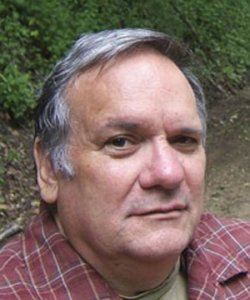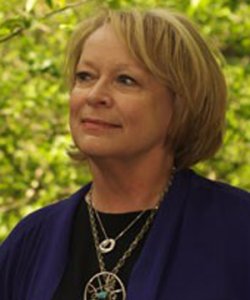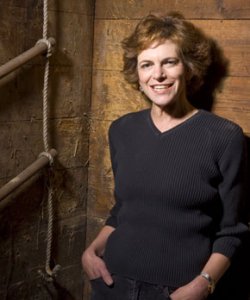Q&A: Twichell Passes Ausable Torch

Poet Chase Twichell talks about the decision to end her ten-year run as publisher and hand over her independent press to the nation’s largest poetry publisher, Copper Canyon Press.
Jump to navigation Skip to content
Articles from Poet & Writers Magazine include material from the print edition plus exclusive online-only material.

Poet Chase Twichell talks about the decision to end her ten-year run as publisher and hand over her independent press to the nation’s largest poetry publisher, Copper Canyon Press.
Page One features a sample of titles we think you'll want to explore. With this installment, we offer excerpts from Boring Boring Boring Boring Boring Boring Boring by Zach Plague and Demons in the Spring by Joe Meno.

The story of David Rhodes is punctuated by early successes and devastating losses, personal demons and unlikely angels, dogged determination and blind faith, and the next chapter begins with the triumphant return of a major American novelist after a thirty-year silence.
Do you have a special place where you sit down (or stand up) to write every day? Whether it's a traditional desk surrounded by your favorite books, a little space cleared away at the kitchen table, or a slightly more exotic locale, send us a photograph of it.

To get to Wonewoc, the small town in Wisconsin where novelist David Rhodes lives with his wife, Edna, one must look for signs to Highway 80, State Road 33, County Road EE, Highway Q, and other rural thoroughfares.
On a sultry Friday night, amid the thumping bass notes from cruising cars and the occasional thunder of the elevated J train, a wonderfully distinctive literary event took place in the dim white rooms of a studio space in northeast Brooklyn.
As the English-speaking world's most famous playwright, William Shakespeare wields a tremendous influence over popular culture, even four centuries after his death. Two new novels, published within a month of each other, bring Hamlet into sharper contemporary focus—and they could not be more different.
For Ethan Canin, writing has never been easy—or, for that matter, pleasurable. Despite the sprawling achievement of America America, his newest novel might just be his last.

Joshua Bodwell explores the fiction behind this “writer’s writer” whose characters are as deep and complex as the man who created them.

The latest documentary film about Hunter S. Thompson, Gonzo: The Life and Work of Hunter S. Thompson, coming to theaters this month, features rare home videos, film clips, and interviews with Johnny Depp, Pat Buchanan, Jimmy Carter, Jimmy Buffet, George McGovern, and others.

Jane Ciabattari, president of the National Books Critic Circle, discusses the art of book reviewing and her recommendations for summer reading.
Literary MagNet chronicles the start-ups and closures, successes and failures, anniversaries and accolades, changes of editorship and special issues—in short, the news and trends—of literary magazines in America. This issue's MagNet features the Southern Review, the Florida Review, the Ontario Review, and Volt.
Small Press Points highlights the happenings of the small press players. This issue features Dzanc Books, OV Books, Black Lawrence Press, Siglio Press, and Coffee House Press.
This installment of Page One features excerpts from All About Lulu by Jonathan Evinson and Awesome by Jack Pendarvis.
Citizen journalists, often blogging in real time, have forced an expansion of creative nonfiction by influencing public opinion on important issues such as the presidential campaign.

Having settled into her new role at Nan Talese’s imprint following her ouster from Houghton Mifflin, editor Janet Silver discusses what she looks for in a new writer and what every author should know about agents.
While it's safe to say the twenty-first century has so far not been a great time for American diplomacy, a handful of new poetry anthologies, from Norton, Dalkey Archive Press, North Atlantic Books, and Graywolf Press, offer proof that American poetic diplomacy might be entering a new golden age.
Pattiann Rogers, author of twelve poetry collections, including Wayfare (Penguin, 2008), recently spoke about the process of writing her latest collection, the importance of investigation, and the pleasure of naming the world.

Phillip Lopate, considered by many to be one of the most important essayists of our time, discusses the controversies surrounding creative nonfiction, his own essay-writing process, and the ultimate quality he looks for in nonfiction—an interesting mind at work on the page.
Founder and editor Rebecca Wolff speaks about Fence magazine’s tenth anniversary.
Speculation and rumor continue to drive the gossip surrounding Tom Wolfe’s and Richard Ford’s decisions to leave their former publishing houses, but their true reasons remain a mystery.
Ordering poems becomes a familiar act if you consider the lyric poem in its original form—the song. And if you were the kind of incessant list-maker Nick Hornby describes in his novel High Fidelity, the kind who also made mix tapes from your album collection. If you were the kind of geek my college boyfriend, Tim, was and—admittedly—the kind I was too.
Today, it seems that we have access to an unlimited amount of information all the time, and for those of us who want to be alone with our thoughts, that information is getting harder and harder to avoid. More and more of us suffer from a condition sometimes called "digital information overload," or "infomania."